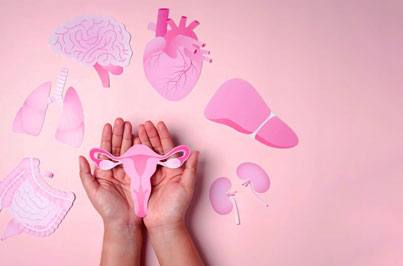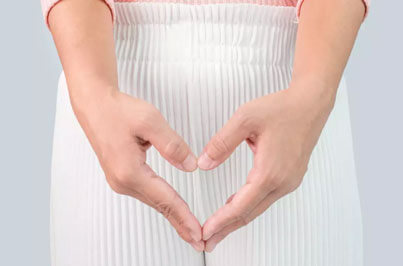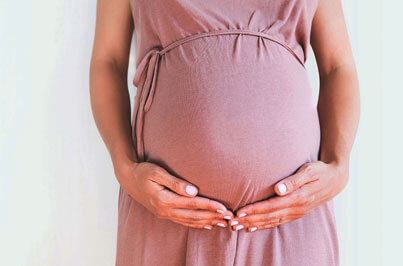However, giving birth is a life-altering event, and the postpartum phase involves important hormonal, mental, and physical changes that call for close monitoring. Every woman's postpartum recovery process is different, based on things like the type of delivery, general health, and support environment. Many new mothers focus only on their newborn’s demands, even ignoring their own recovery. Mothers can, however, recover more quickly and adjust to this new stage of life more easily if they know what to anticipate in the weeks after giving birth. Consulting the best doctor in Hyderabad if you're looking for skilled medical care during your postpartum recovery will guarantee that you have the assistance, care, and direction you need to recover in a safe and comfortable manner.
Physical Recovery After Childbirth
Postpartum bleeding, also sometimes referred to as lochia, is among the first symptoms that new moms have following childbirth. This can last anywhere from two to six weeks and happens when the uterus removes its lining. Lochia initially resembles a heavy menstrual period before slowly become lighter. Maternity pads are a better option for mothers than tampons in order to avoid infection. It is crucial to get in touch with the top physician in Hyderabad right away for medical assistance if you detect severe bleeding, big clots, or a bad smell.
Women who have given birth through the vagina commonly experience pain and discomfort in the abdomen, particularly if there was tearing or an episiotomy (a little cut made to expand the birth tube). For several weeks, the area may feel bloated and painful. Pain can be reduced by applying ice packs, taking warm sitz baths, and taking prescribed painkillers. To improve recovery and strengthen the pelvic floor muscles, doctors frequently suggest Kegel exercises. Consulting an experienced doctor ensures proper examination and therapy if pain continues or gets worse.
As a major abdominal operation, healing takes longer for mothers who have had a cesarean section. Fatigue, limited mobility, and incision site pain are common. For at least six weeks, doctors recommend avoiding intense activities, heavy lifting, and excessive bending. To avoid infection, wounds must be properly cared for. To avoid complications, it is important that you immediately seek medical care from the best doctor in Hyderabad if you have redness, swelling, discharge, or fever.
As a major abdominal operation, healing takes longer for mothers who have had a cesarean section. Fatigue, limited mobility, and incision site pain are common. For at least six weeks, doctors recommend avoiding intense activities, heavy lifting, and excessive bending. To avoid infection, wounds must be properly cared for. To avoid complications, it is important that you immediately seek medical care from the best doctor in Hyderabad if you have redness, swelling, discharge, or fever.
Hormonal and Emotional Changes
In the initial weeks after childbirth, many new mothers suffer emotional ups and downs, mood swings, and irritation. Hormonal changes, lack of sleep, and the heavy tasks of caring for a newborn are the main causes of what is commonly known as the baby blues. Usually, the symptoms go away in two weeks. But if you continue to feel depressed, anxious, or hopeless beyond this time, it may be a sign of postpartum depression, which calls for expert treatment. Getting guidance from the top physician in Hyderabad can aid in the accurate diagnosis and successful treatment of postpartum mental health conditions.
Postpartum depression (PPD) is more severe and prolonged than baby blues. Prolonged sadness, disinterest in everyday activities, excessive exhaustion, trouble bonding with the baby, and even suicidal thoughts are some of the symptoms. Mothers may also have anxiety and panic attacks, which can make coping challenging. A healthy recovery depends on early intervention, and consulting with the doctor can give the required support, medication, and counseling.
Breastfeeding and Lactation Challenges
While breastfeeding is a natural procedure, there are several difficulties involved. Engorgement, or painfully full breasts, is a common occurrence for new mothers. Breastfeeding can also be challenging if you have sore breasts, crack, or have trouble latching on. It can be beneficial to use lanolin lotions, warm compresses, and appropriate nursing practices. A lactation consultant a specialist can offer professional advice if there is continuous discomfort, a low milk supply, or problems with breastfeeding.
Bacterial infections and clogged milk ducts may cause the painful illness known as mastitis. Redness, fever, flu, and swelling are some of the symptoms. The illness can be treated by taking antibiotics (if prescribed), using warm compresses, and continuing to breastfeed. Ignoring mastitis can result in the development of an infection, so if symptoms intensify, it's critical to get help right away from the specialist who is taking care of the complete process.
Postpartum Nutrition and Physical Recovery
A healthy diet is essential for postpartum recovery. A well-balanced diet high in fiber, calcium, iron, and protein aids in healing and restores decreased nutrients. Equally vital is staying hydrated, particularly for nursing moms. Recovery can be facilitated by consuming complete meals, limiting caffeine intake, and including items that promote breastfeeding. Consulting the best gynecologist can offer tailored nutritional advice depending on each patient's particular medical requirements.
Many women want to reduce the weight they gained during pregnancy, but it's important to concentrate on losing weight slowly and healthily. With a doctor's consent, mild workouts such as walking, stretching, and pelvic floor exercises can begin a few weeks following delivery. It is best to refrain from intense exercise until the body has completely recovered. A safe and efficient postpartum exercise program can be developed with the support of the top doctor in Hyderabad if problems with weight management, metabolism, or fitness are present.
Postpartum Health Concerns and When to See a Doctor
Certain symptoms require immediate medical attention. If a new mother experiences any of the following, consulting the best doctor in Hyderabad is essential:
- Headaches that don't go away or severe stomach discomfort that soaks a pad in an hour
- High fever (more than 100.4°F)
- Postpartum depression symptoms include suicidal thoughts and continuous sadness
- Legs that hurt, swell, or become red (possible blood clot)
- Chest pain or difficulty breathing (indications of a rare yet serious effects)
Final Thoughts: Prioritizing Postpartum Care
Self-care, rest, and expert treatment are all necessary for the long process of postpartum recovery. Every mother's journey is special, so it's critical to pay attention to your body, get support when you need it, and take your time getting better. New moms need to understand the changes they will experience, from physical recovery and hormonal balance to mental health and nursing difficulties. Consulting the top doctor in Hyderabad guarantees skilled care, quick medical intervention, and tailored assistance, helping new mothers navigate the postpartum period securely and confidently. In order to heal and welcome motherhood with joy and strength, new mothers must prioritize self-care, seek support, and follow medical advice.




